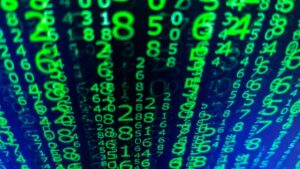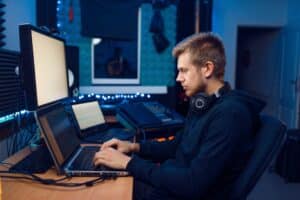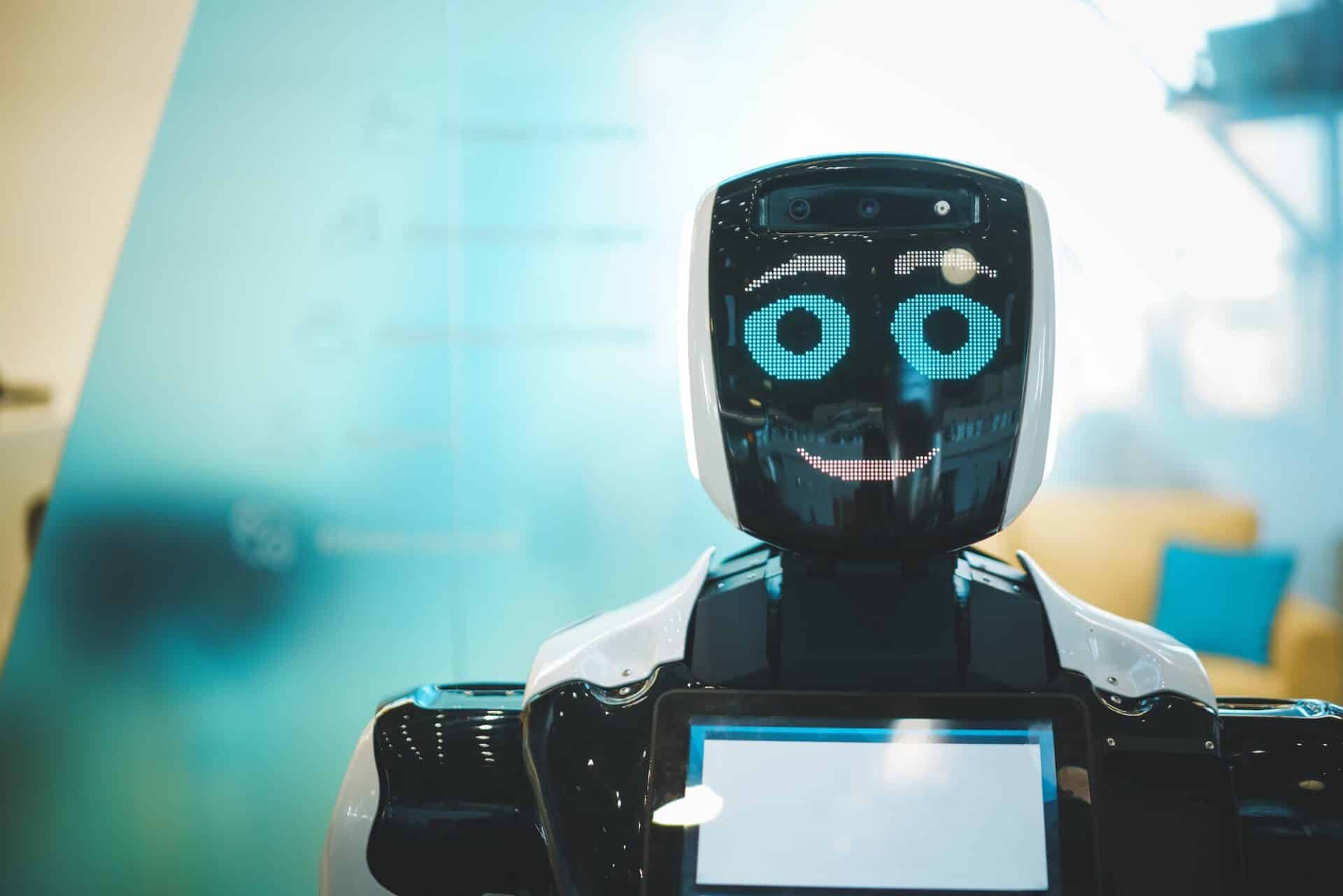Reading Time: 4 minutes
Picture a future where artificial intelligence (AI) codes its own programs, seamlessly executing tasks without human intervention. Does this spell the end of the road for programmers? “Will AI replace programmers?” is a question that’s causing quite a stir in the tech community. But, let’s cut through the noise and figure out what’s really going on.
The AI Revolution: From Sci-fi to Reality
 In the past few years, AI has rapidly infiltrated every industry, reshaping how we work, communicate, and solve problems. We’re experiencing an era of unprecedented digital transformation, leaving many to ponder about the future of programming.
In the past few years, AI has rapidly infiltrated every industry, reshaping how we work, communicate, and solve problems. We’re experiencing an era of unprecedented digital transformation, leaving many to ponder about the future of programming.
AI tools like OpenAI’s GPT-4, capable of understanding and generating human-like text, are rewriting the rules of automation. However, is it feasible for AI to completely replace programmers? As of now, it appears we’re in a cooperative rather than a competitive relationship with AI in the programming sphere.
How AI and Programming Intersect
 Let’s walk through a scenario. Imagine a skilled programmer named John. John’s days usually involve troubleshooting, debugging, and writing new code. With the advent of AI, he starts using an AI-powered tool to automate some of his tasks.
Let’s walk through a scenario. Imagine a skilled programmer named John. John’s days usually involve troubleshooting, debugging, and writing new code. With the advent of AI, he starts using an AI-powered tool to automate some of his tasks.
The tool successfully takes over mundane coding tasks, saving him time. However, it often requires John’s expertise to provide context, rectify its misunderstandings, and ultimately make critical decisions. While AI augments John’s productivity, it doesn’t make his role redundant.
The Symbiotic Dance: How AI Currently Assists Programmers
AI isn’t just a speculative concept; it’s already entrenched in the programming realm, shaping our present in fascinating ways. Developers are using AI-powered tools for code generation, debugging, and software testing. AI assists in predictive analysis, offering suggestions to improve code quality and prevent potential issues.
However, these tools don’t operate independently. Instead, they require human programmers to instruct, manage, and fine-tune their operations. This symbiotic relationship has the potential to propel programming productivity to new heights.
The Evolution of AI in the Programming Sphere
The journey of AI in the programming industry isn’t a sudden advent; it’s a story that has unfolded over decades. Initial AI programs were rule-based and lacked adaptability. But with advancements in machine learning and neural networks, we’ve moved towards AI models that can learn from data and improve over time.
When John started his career, AI tools were relatively rudimentary, used mostly for syntax suggestions and basic debugging. Fast forward to today, John now collaborates with sophisticated AI-powered platforms that can generate functional code, predict bugs, and offer optimization recommendations.
Case Study: A Glimpse Into Real-World AI-Powered Programming
Let’s consider GitHub’s Copilot, an AI-powered code assistant. It provides suggestions for whole lines or blocks of code as developers type. It adapts to the coding style of the user and delivers increasingly accurate recommendations.
Yet, while Copilot is a powerful aid, it doesn’t remove the need for human programmers. Users report that while it can generate valuable suggestions, it often requires human understanding to validate and implement them correctly.
5 Reasons Why Programmers are Here to Stay
Even with AI’s growing prowess, here’s why programmers will remain invaluable:
Complex Problem-Solving: AI can automate repetitive tasks but falls short in addressing complex, non-repetitive problems that require unique, creative solutions.
Understanding Context: AI lacks the human touch and fails to understand the nuances and context of real-world scenarios.
Continuous Learning and Upgrading: The AI tools themselves need to be trained, updated, and upgraded, a task best suited for human programmers.
Ethics and Regulations: Ethical considerations and regulatory compliance require human intervention and understanding.
Unpredictability of Errors: Errors and exceptions in programming are unpredictable. A human mind is still superior when it comes to debugging and troubleshooting.
What Does this Mean for the Future of Programming?
The answer is collaborative intelligence, a fusion of human creativity and machine efficiency. As AI advances, we’ll see an evolution in the roles of programmers rather than their extinction. They’ll be curating, guiding, and controlling AI systems, ensuring they operate within ethical, legal, and quality boundaries.
Frequently Asked Questions: The AI-Programming Nexus
Will AI take away jobs from programmers?
While AI will automate certain tasks, it will also create new jobs that we can’t even envision yet. Just like the industrial revolution, this digital revolution will redefine jobs rather than eradicate them.
Can AI write flawless code?
No. While AI can generate code, the nuances and complexity of programming often require human oversight for efficient, error-free functioning.
Can AI become a self-sufficient programmer?
As of our current understanding and technology, no. While AI can automate specific tasks and learn from data, it lacks the intuitive understanding, creativity, and ethical judgment needed for comprehensive programming.
How does AI impact the job market for programmers?
AI could streamline certain roles, leading to a shift in job roles rather than a decrease in job numbers. It opens up new avenues like AI ethics specialists, AI trainers, and more.
How can programmers prepare for an AI-centric future?
Programmers can embrace AI tools to augment their productivity and continue learning about AI advancements. Also, honing problem-solving skills, creativity, and understanding of ethical and regulatory considerations will ensure they remain invaluable.
Your Thoughts: Will AI Replace Programmers?
We’ve heard what experts have to say, but what about you? Do you believe AI is a threat to programmers, or is it a tool that will enhance their capabilities?
We invite you to share your thoughts and perspectives. After all, the future of AI and programming is not just shaped by industry leaders but by every professional in the tech community.
Conclusion: Coexistence Over Replacement
Returning to our question, “Will AI replace programmers?” – it seems that AI and programmers will continue to coexist, collaboratively shaping the future. The changing dynamics will redefine the roles of programmers, turning them into AI managers or collaborators, rather than rendering them obsolete.
This transformation isn’t a threat but an opportunity to unleash unprecedented programming productivity and innovation. After all, the best of AI and human intelligence can together create a future that neither could achieve alone.








